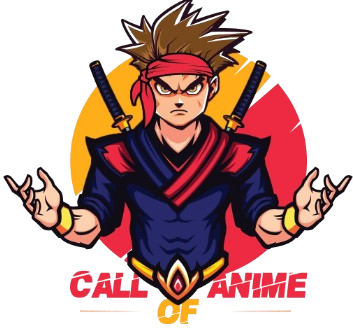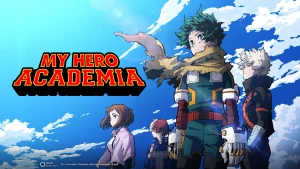My Hero Academia: What It Means to Be a Hero
called Quirks, the series examines the ideals of heroism, the weight of responsibility, and the power of perseverance.
The World of Heroes and Quirks
1. A Society of Superpowers
In My Hero Academia, nearly 80% of the population possesses Quirks, ranging from minor abilities to extraordinary powers. This has transformed society, giving rise to professional heroes who use their abilities to protect others and maintain order.
2. The Hero System
Becoming a hero is a structured and regulated career path. Students attend specialized schools like U.A. High School to hone their Quirks and learn the skills needed to save lives. However, the professional hero system also introduces moral and ethical dilemmas, as popularity and rankings can overshadow the true essence of heroism.
The Journey of Izuku Midoriya (Deku)
1. The Underdog Story
Izuku Midoriya, the protagonist, is born Quirkless in a world that values superpowers. Despite this, he idolizes heroes and dreams of becoming one himself. His perseverance and unwavering determination catch the attention of All Might, the world’s greatest hero, who passes on his Quirk, One For All, to Deku.
2. Growing into a Hero
Deku’s journey is a testament to hard work and self-belief. He learns to master One For All while facing formidable foes and moral challenges. His development from a timid, Quirkless boy to a capable and inspiring hero embodies the essence of My Hero Academia.
The Meaning of Heroism
1. Selflessness and Sacrifice
The series emphasizes that heroism isn’t about fame or fortune but about selflessness. Heroes like All Might and Endeavor put their lives on the line to protect others, demonstrating that true heroism often comes with personal sacrifice.
2. Overcoming Fear
A hero isn’t defined by the absence of fear but by their ability to act despite it. Deku and his classmates frequently face overwhelming odds, showing that courage and determination are essential qualities of a hero.
3. Inspiring Others
Heroes serve as symbols of hope. All Might’s iconic smile and unyielding resolve inspire both civilians and other heroes to persevere in the face of adversity. Deku strives to carry on this legacy, proving that a hero’s greatest strength lies in their ability to uplift those around them.
Themes of Responsibility and Legacy
1. The Burden of Power
All Might’s passing of One For All to Deku represents the transfer of responsibility and the weight of power. Deku grapples with the expectations placed upon him and learns that being a hero is as much about emotional strength as physical ability.
2. Villains as Foils to Heroes
Villains like Tomura Shigaraki and the League of Villains challenge the ideals of heroism, exposing the flaws in society’s hero system. These antagonists force the heroes to reflect on their values and adapt their understanding of justice.
3. The Importance of Mentorship
The mentor-student relationships in My Hero Academia—whether it’s All Might and Deku, Eraser Head and Class 1-A, or Gran Torino and his protégés—highlight the importance of guidance and legacy in shaping the next generation of heroes.
The Role of Teamwork and Diversity
1. Strength in Unity
Class 1-A’s diverse roster of students showcases the importance of teamwork. Each character’s unique Quirk and personality contribute to the group’s success, reinforcing the idea that collaboration is essential in overcoming challenges.
2. The Value of Different Perspectives
The series celebrates individuality, showing that even those with unconventional Quirks or approaches can achieve greatness. This inclusivity reflects the broader message that heroism comes in many forms.
The Impact of My Hero Academia
1. A New Generation of Superheroes
My Hero Academia has redefined the superhero genre for anime fans, blending action-packed battles with heartfelt character development. Its focus on moral complexity and personal growth sets it apart from traditional hero narratives.
2. Universal Themes
The series resonates with audiences worldwide due to its universal themes of perseverance, self-belief, and the pursuit of justice. It reminds viewers that anyone, regardless of their circumstances, can strive to be a hero in their own way.
3. Cultural and Fan Impact
From its vibrant characters to its inspiring storyline, My Hero Academia has garnered a dedicated fanbase, spawning merchandise, films, and even discussions about real-world heroism.
Conclusion
My Hero Academia explores the essence of heroism, proving that being a hero goes beyond possessing extraordinary powers. It’s about courage, empathy, and the willingness to stand up for what’s right. Through Deku’s journey and the diverse cast of characters, the series inspires us to embrace our own potential and strive to make a difference, no matter how daunting the challenge.
In the world of My Hero Academia, everyone has the chance to be a hero—and so do we.

